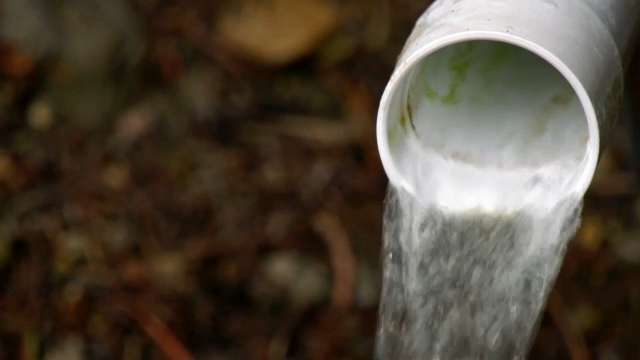Governments exploring non-potable water source for Manitoba industrial park

The provincial and federal governments are teaming up to determine the feasibility of a non-potable water source in a Portage la Prairie-area industrial park.
On Wednesday, the governments announced they are committing $55,000 to study the possibility of a non-potable water source for tenants of an industrial park in the RM of Portage la Prairie. The water source would be used for non-food processing purposes at the Poplar Bluff Industrial Park.
“With increasing signs of climate change, every action the agriculture industry can take to use scarce inputs wisely matters,” said federal Agriculture and Agri-Food Minister Marie-Claude Bibeau, in a news release.
“Projects like this show great initiative on the part of Manitoba’s processing sector – improving sustainability through one small action can lead to further wins and opportunities down the road.”
Poplar Bluff Industrial Park, located west of the city of Portage la Prairie, includes Simplot Canada Ltd., Roquette Canada Ltd., Enns Brothers, Overton Environmental, and K&G Mushrooms.
The Portage la Prairie’s city water treatment plans currently provides water for these businesses, while the RM of Portage la Prairie’s non-potable distribution system provides the fire protection water supply.
The tenants of the industrial park said they are interested in using non-potable water sources for non-food processing purposes, and reusing water when possible.
“Emerging research and technology are revealing creative ways to conserve and recycle water,” said Dominique Baumann from Roquette Canada Ltd.
“This study will provide valuable direction for local industrial users as we work together toward a more sustainable approach for water usage.”
The report is expected to be finished in spring 2023, and will provide options and cost estimates on the infrastructure needed to use a non-potable water source. The provincial government and RM of Portage la Prairie will review the report and consider the next steps in collaboration with the industrial park businesses.
The government funding for the study is coming from the Canadian Agricultural Partnership.
CTVNews.ca Top Stories

B.C. tenants evicted for landlord's use after refusing large rent increase to take over neighbouring suite
Ashley Dickey and her mother rented part of the same Coquitlam duplex in three different decades under three different landlords.
Mountain guide dies after falling into a crevasse in Banff National Park
A man who fell into a crevasse while leading a backcountry ski group deep in the Canadian Rockies has died.
Expert warns of food consumption habits amid rising prices
A new survey by Dalhousie University's Agri-Food Analytics Lab asked Canadians about their food consumption habits amid rising prices.
MPP Sarah Jama asked to leave Ontario legislature for wearing keffiyeh
MPP Sarah Jama was asked to leave the Legislative Assembly of Ontario by House Speaker Ted Arnott on Thursday for wearing a keffiyeh, a garment which has been banned at Queen’s Park.
Charlie Woods, son of Tiger, shoots 81 in U.S. Open qualifier
Charlie Woods failed to advance in a U.S. Open local qualifying event Thursday, shooting a 9-over 81 at Legacy Golf & Tennis Club.
Ex-tabloid publisher testifies he scooped up possibly damaging tales to shield his old friend Trump
As Donald Trump was running for president in 2016, his old friend at the National Enquirer was scooping up potentially damaging stories about the candidate and paying out tens of thousands of dollars to keep them from the public eye.
Here's why provinces aren't following Saskatchewan's lead on the carbon tax home heating fight
After Prime Minister Justin Trudeau said the federal government would still send Canada Carbon Rebate cheques to Saskatchewan residents, despite Saskatchewan Premier Scott Moe's decision to stop collecting the carbon tax on natural gas or home heating, questions were raised about whether other provinces would follow suit. CTV News reached out across the country and here's what we found out.
Montreal actress calls Weinstein ruling 'discouraging' but not surprising
A Montreal actress, who has previously detailed incidents she had with disgraced Hollywood producer Harvey Weinstein, says a New York Court of Appeals decision overturning his 2020 rape conviction is 'discouraging' but not surprising.
Caleb Williams, Jayden Daniels and Drake Maye make it four NFL drafts with quarterbacks going 1-3
Caleb Williams is heading to the Windy City, aiming to become the franchise quarterback Chicago has sought for decades.

































